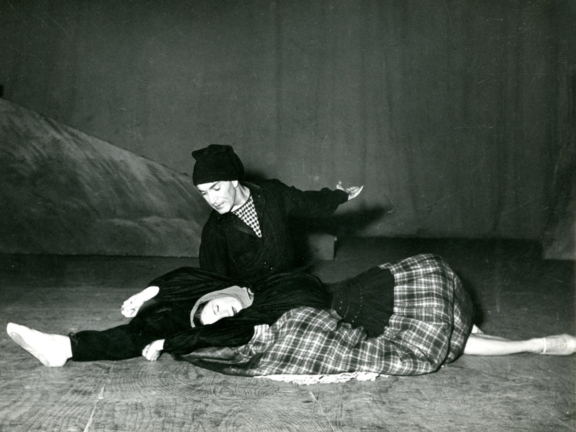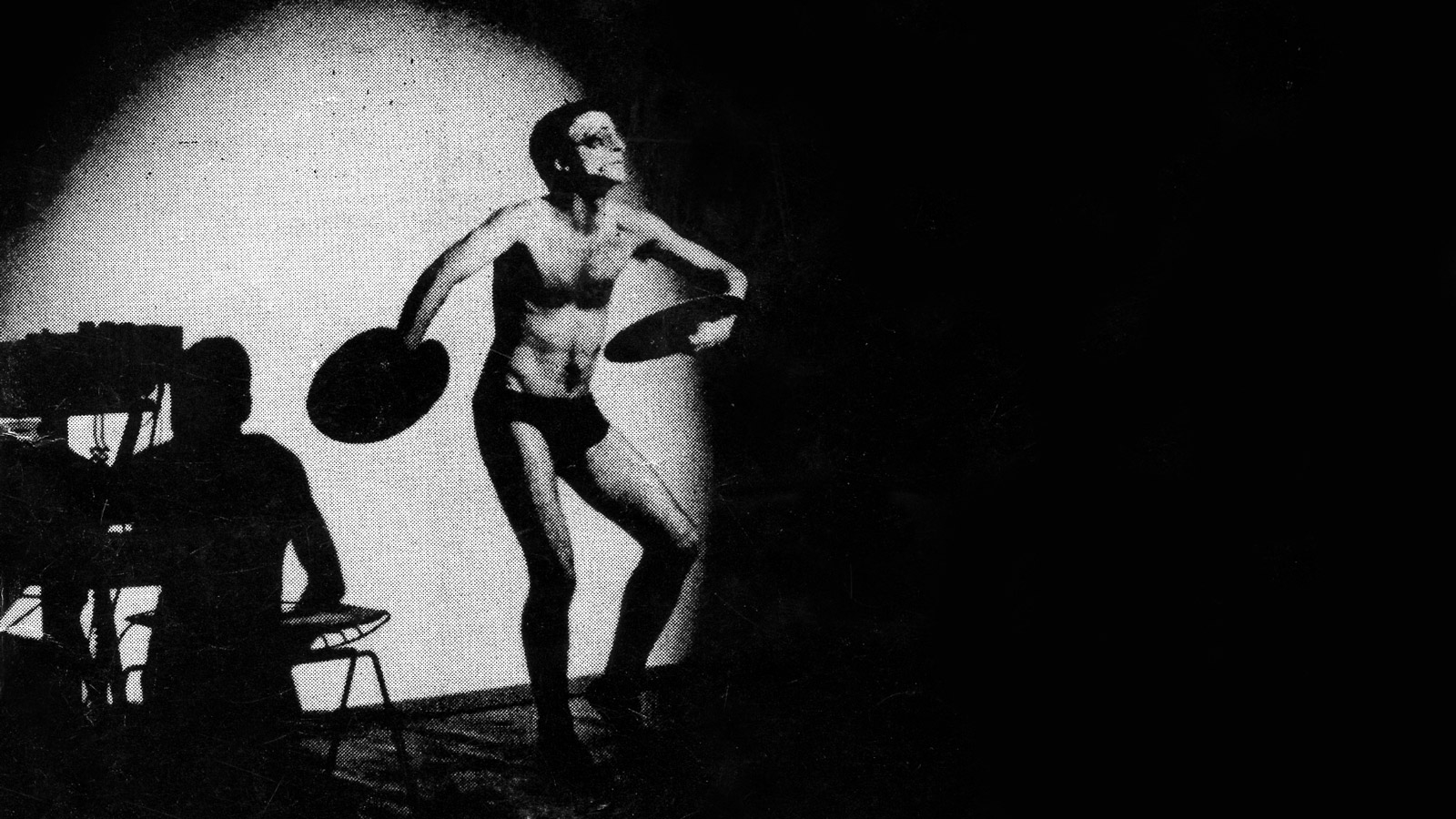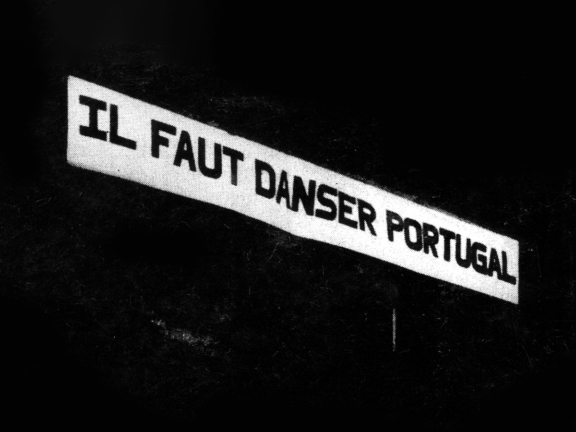
Il Faut Danser Portugal
By António Olaio transmitted by Vânia Rovisco (Reacting to Time) with the Lisbon Theatre and Film School (ESTC)
Event Slider
Date
- / Cancelled / Sold out
Location
Congress Area Calouste Gulbenkian FoundationDuration: 30 min.
This 1984 performance by António Olaio, reactivated by Vânia Rovisco (as part of her project Reacting to Time – Portuguese in Performance), is being presented on the same day as the performance Nazaré, one of the most emblematic pieces by the Portuguese dance company “Verde Gaio”, originally choreographed by Francis Graça and reinterpreted by students from Lisbon Higher School of Dance (ESD).
How far does the “Portugality” parodied by António Olaio in 1984 correspond to that stylised by Francis Graça in 1948? How do they both contribute to a study of the relationship between 20th-century Portuguese choreography and ideas of national identity or their criticism? Might the contrast between these two pieces foresee so many others that, declaredly Portuguese, flesh out a culture that is as iconoclastic as it is situated and limited? How can we understand transmission in dance by taking the way in which these works persist today as an example? What is transmitted when transmitting dance?
Between Nazaré‘s double session, there is a talk with Vânia Rovisco, António Olaio and Cristina Graça (ESD), moderated by Paula Parente Pinto, where they discuss some of the issues raised by the juxtaposition of the two (re)performances.
Imagem: Il Faut Danser Portugal, de António Olaio. Cortesia de Performing the Archive / Collection Egídio Álvaro.
Reacting to Time – Portuguese in Performance seeks to update the specific nature of embodied memory in Portugal's first experiences of performance art. The process is one of building a living archive that is made manifest in the bodies.
Since 2014, Vânia Rovisco has run workshops whose aim is to transmit a performance to participants that was transmitted on to her by its author. To date, Identificatión (1975) by Manoel Barbosa, Il Faut Danser Portugal (1984) by António Olaio and Expresiones y interacción (1997) by Fernando Aguiar have been transmitted on and re-performed.
António Olaio (1963, Lubango) is a painter and performer. His performances in the early 1980s led him to music. He was one of the founders of Repórter Estrábico in 1986 and, since 1995, has often presented the songs he makes in his exhibitions. He has had solo exhibitions and performances in Portugal, Spain, Holland, Germany, the USA and the UK. He teaches at the University of Coimbra.
Vânia Rovisco (1975, Durban) is a visual and performing artist. She took the Contemporary Dance Performers Course at Fórum Dança and worked as a performer with Meg Stuart/Damaged Goods. She has collaborated with Pierre Colibeuf, Helena Waldmann, Gordon Monahan and Vera Mantero, among others. She teaches and directs movement. She is the co-founder of AADK and has been designing installations and performances for art galleries since 2007.
dance not dance
This event is included in the (re)performances, films and talks series which constitutes the first part of dance not dance – archaeologies of the new dance in Portugal. More info.
Credits
Artistic direction
Reacting to Time: Vânia Rovisco
Il Faut Danser Portugal
António Olaio
Music
You made me love you by Nat King Cole (music by James V. Monaco and lyrics by Joseph McCarthy)
Commission
Egídio Álvaro for the Portuguese Performance Festival at Centre Georges Pompidou, 1984
Collaboration
The Calouste Gulbenkian Foundation reserves the right to collect and keep records of images, sounds and voice for the diffusion and preservation of the memory of its cultural and artistic activity. For further information, please contact us through the Information Request form.



